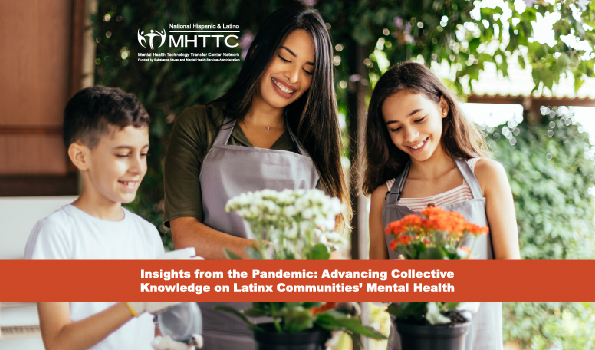Home > News > Insights from the Pandemic: Advancing Collective Knowledge on Latinx Communities’ Mental Health
The COVID-19 pandemic has disproportionately impacted Latinx communities and highlighted how preexisting health disparities increase mental health conditions (Fortuna & Tolou-Shams, 2020). Challenges faced by Latinx families such as bereavement, food insecurity, reduced access to mental health services, and housing instability emphasize the critical need to translate and apply the best practices at the intersection of behavioral health, comprehensive school mental health systems, and Hispanic cultures.
The purpose of this product is to share the lessons learned in implementing behavioral health strategies during the pandemic and exchange ideas for future responses and programs’ needs for improving Latinx communities’ mental health. The resource is a collaboration among the National Hispanic and Latino MHTTC, Central East MHTTC, National Center for School Mental Health, and the Milken Institute School of Public Health at George Washington University.
